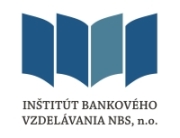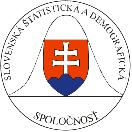Corporate
Slovakia’s sole copper smelter Kovohuty Krompachy has already gone through its own hell. After two bankruptcy proceedings and a complicated restructuring, better times are ahead for the revitalized company, following the entry of a strategic investor. Austria’s Montana Brixlegg in July acquired two thirds of Kovohuty from Luxembourg-based Capitalue S.A. Private venture fund Capitalue became the majority owner of the smelter in xxx, with a clear strategy to sell its stake to a strategic investor later. The price paid by Brixlegg will be disclosed after the transaction is approved by the competition regulators in both countries. Kovohuty’s restructuring and the subsequent search for the strategic investor was advised by the Slovak financial group Slávia Capital.
Public Finance
One month before the end of the government’s four-year term, the Cabinet agreed to a radical solution of how to recover the money that Slovakia is owned by Russia, opting for the path followed by fellow creditors Germany and neighboring Czech Republic. The government has begun to prefer cash payments to payments by deliveries of goods, which has been the most common method used so far. As many expected, the decision was met with contradicting reactions by both economists and politicians.
Russia still owes Slovakia around $900 million, or slightly more than 40 billion SKK, in Soviet-era debt. The amount could fall by half, $460 million to be exact, as early as at the beginning of September, if the transaction approved by the government last week mainly by ministers for SDKU and SMK is carried out. Under the deal’s terms, Slovakia would sell the above-mentioned amount of the debt to Vneshekonombank, Russia’s state-owned financial institution for 30 percent of its face value, accounting for more than 6 billion SKK. The decision of the bank, which plays a crucial role in the transaction, was made by Moscow, and represents one of Russia’s conditions attached to the deal, says Vladimil Podstránsky, Deputy Finance Minister.
Construction
The highway section between two of Bratislava’s distant parts Mierová and Senecká will significantly improve the quality of traffic in Slovakia’s capital. Doprastav, the No. 1 construction company in the country, managed to finish works one month ahead of schedule. However, in the end, the costs were 14.2 million euro higher than planned, an unpleasant finding for many, if one recalls that the low price offered by Doprastav was the main factor behind its success in the tender for such a lucrative project. No wonder, it is now facing criticism from the rivals, who in May 1999 asked for more money to build the link than the 60.8 million euro offered by Doprastav: prices included in the second and third best bids were higher by 15 and 20.5 percent, respectively. Despite the fact that the feasibility of the winning bid was reviewed in detail by the European Investment Bank and European Union, who lent the government money to finance the project, the bill has swollen to almost 75 million euro.
Real Estate
The slow pace of proceedings at Slovakia’s Land Register is one of the main factors, alongside the poor financial situation of households and companies, constraining the real estate market in the country. Cronyism and corruption, which result in preferential treatment of the ‚right‘ applications at the expense of others, make the problem even worse. The state authorities, reacting to an initiative by Deputy Prime Minister for Economy Ivan Mikloš, began the search for solutions of how to solve this complicated problem late last year. The government’s Central Anti-Corruption Unit set up a team of experts, which was asked to analyze the situation and propose systemic measures for improvement of the Register’s functioning. The Cabinet has discussed the issue several times, with a special emphasis on the financing reform. The reform should ensure that the institution is able to cover its costs, providing room for sufficient salaries, which will diminish the room for corruption.
However, such a reform is a long-distance run, so the government, facing piles of outstanding applications for a change in the register, took a rather non-systemic measure: in March it allotted 19 million SKK to help process the most over-due files. As a result, the number of applications that had been in the waiting line longer than the legal limit of xx months, has fallen by a third to 22,378 during the past three months. While the average number of cases processed per month increased to 21,000 in April from 18,000 in March. Government officials say that the majority of over-due applications should be processed by the end of September.
Car Theft
In 1989, 1,668 cars were stolen in Slovakia, and the police solved 80 percent of the cases. Four years later, a mere 19 percent of stolen car cases, which shot up to above 10,000, were solved. Since 1994, the number of cases has been stable at between 6,000 and 7,000 a year. Increased police activity was not the only reason for the decline, experts say. The situation changed for the better mainly in response to tighter conditions imposed by insurance companies that had to cope with enormous losses stemming from car insurance. So, alarms combined with mechanical anti-theft devices became pre-conditions for obtaining policies. Still, car theft accounts for around a third of the value of all property crimes committed every year in Slovakia. Figures are still high, despite successful crackdowns last year on organized gangs in Bratislava, and three other Slovak cities. The reason why the situation has not improved is simple, experts say, as dissolution of one gang creates room for another.
Parliament
Slovakia’s National Council passed 551 laws, including 131 sponsored by individual lawmakers, over 63 sessions held during its second (?) term that is about to finish with elections in September. Over the four years, the parliament had to deal with several outbursts of internal tensions within the ruling coalition, which have negatively influenced the quality of the legislative process. This was reflected also in the lawmakers‘ approval ratings among ordinary Slovaks, which have fallen to record lows this month.
Business Environment
„The amount of time it takes to register a company in the Central Company Register varies from case to case. If the application has no formal shortcomings, the decision can be made within one month. If there is anything missing, we ask the applicant to submit the information. Still, the length of the process depends on how complicated a particular case is,“ explains Ivona Hrčeková, Vice-Chairman of District Court in Bratislava. Experience shows that the registration usually takes around one month, compared with between four and six weeks in Germany and Austria.
Stricter rules for registration laid down in the latest amendment to the Company Act should also help clean the Slovak business environment from fraud. „The register’s files include basic information on company owners and management,“ says Lucia Žitňanská, a law professor at the Commenium University in Bratislava. „Its basic aim is to provide information to the public. It’s now up to entrepreneurs whether they will use this information. Nobody can be protected against his or her will.“






